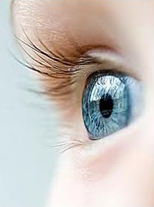Childrens Vision
Childrens Vision
Any person of any age can be examined comprehensively using various optical techniques :
- some are subjective ie we ask you for a response to a question,
- and some are clinical – we observe and measure focussing, eye health and eye co-ordination independently using instrumentation and clinical training.
So don’t be concerned that your child will be too young to have a meaningful, accurate examination of their eyes – even babies can be tested (and we have great cartoons and pictures to make it interesting for them!)
As Behavioural Optometrists, both George and Suzanne Sahely have completed a three-year post-graduate degree, and combined have over 40 years experience. This has allowed them to expand on their knowledge of how vision works and how it can be modified to enhance performance at school, work or in sports achievements.
Examinations
When an examination is done for any patient at our practice, especially children, we are investigating four distinct areas of vision:
- How healthy are your eyes?
- How clearly can you see?
- How effectively can you use your eyes as a team and do you have good visual efficiency?
- Can you make sense of what you see ?(ie can your brain process the information your eyes receive?)
Traditional eye testing will commonly do the first two steps, but not the third and fourth areas. So if your child has had a previous eye test and been told everything is fine, a Behavioural Optometry test may still reveal new information about how your child’s eyes truly function.

Since the testing procedure is fairly extensive, we break it into two sessions:
Functional Skills. This initial examination may take anywhere from 20mins to over an hour, depending on their age, developmental history, presenting complaint and findings during the examination. Any significant findings from this examination will normally be addressed first (eg glasses/eye exercises prescribed, treatment of lazy eyes etc) before the second session is scheduled.
Visual Perceptual & Cognitive Thinking Skills. This examination usually takes around an hour and is always scheduled in the morning to ensure fatigue is not a factor in the scores. It investigates “how the brain sees” rather than just the eyes, and looks at how the child processes or makes sense of the information they take in through their vision.
Even if your child can see the smallest speck on the floor or the highest plane in the sky, they may have other factors that will affect how easily they can use their eyes and understand their vision. Clearly, when it comes to eyes, if you cannot see you cannot learn as well, but there are also some less obvious reasons your child may not be reaching his potential in school/sports:-
If any of the following relate to your child, you should consider a comprehensive Behavioural Optometry assessment:
- Sore/tired eyes
- Regular Headaches
- Blurry or “fuzzy” vision
- Discomfort when reading
- Losing place on the page
- Loses concentration quickly
- Difficulty copying from the board
- Skipping/repeating words when reading
- Confusing/reversing letters and numbers
- Has to read the same text more than once to make sense
- A “bright” child in many areas, but just not achieving at school
Visual conditions more likely to cause difficulties for young developing eyes
Convergence Problems
Convergence is the act of bringing the eyes accurately inward towards a close object. Our eyes converge when we read. If a person has difficulty doing this, he will have to expend excessive effort and energy in order to maintain clear print. This often leads to reading difficulties, poor comprehension, a dislike for reading, and may contribute to learning disabilities. Studies have shown that concentration and comprehension of reading material are drastically reduced when a person has to concentrate just to keep both eyes converged.
Focussing Problems
Seeing clearly is often taken for granted, but how well you can hold your focus steady for prolonged periods may influence your comprehension, concentration and enjoyment of reading. Copying from the board also demands an expectation that focussing skills are flexible and efficient, though this is not always the case.
Eye Tracking
Keeping place on the page as you read is critical if you are to make sense of the text and read fluently. Tracking problems make for a slow reader, and often creates frustration.

